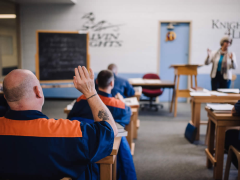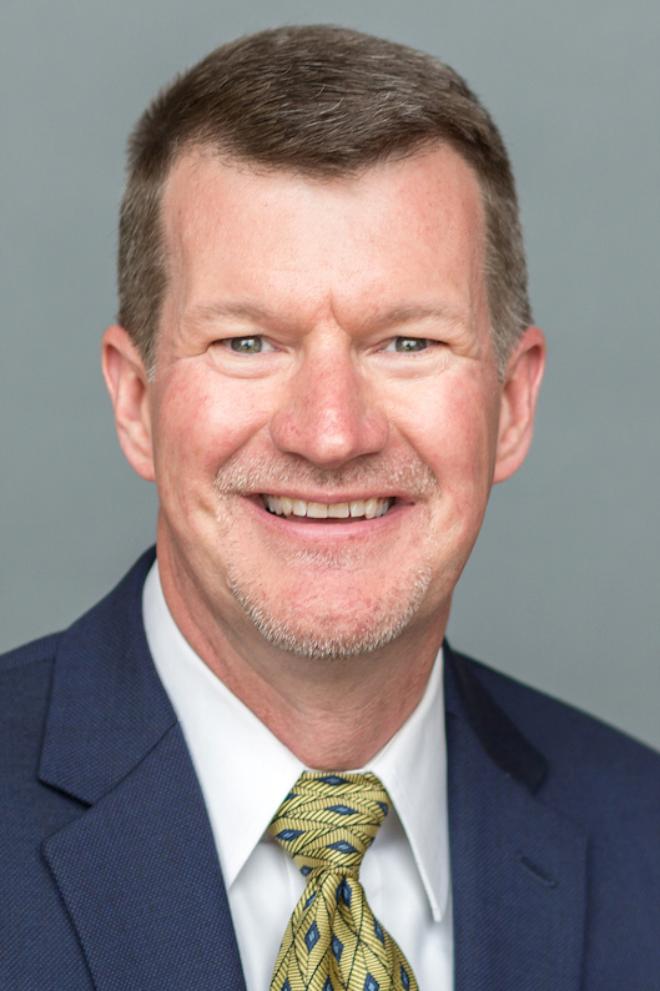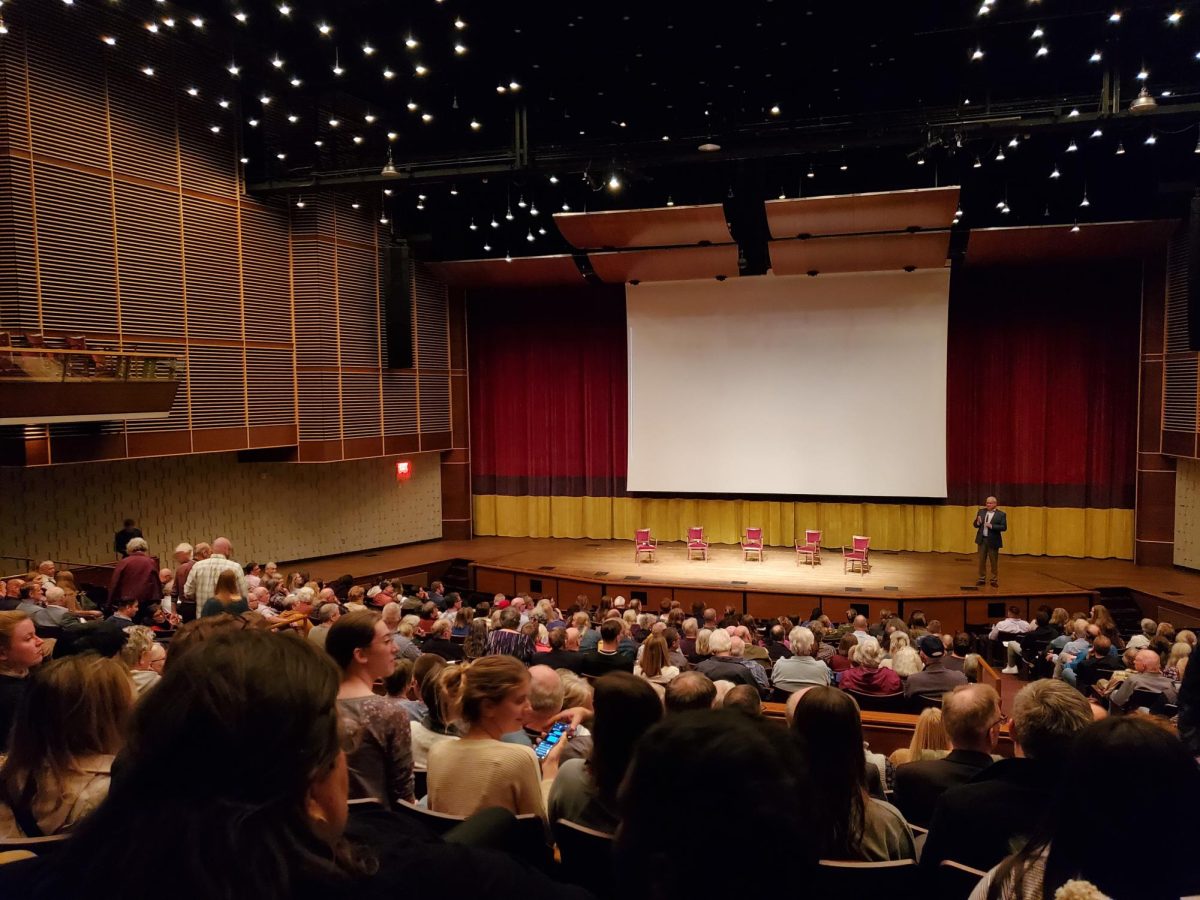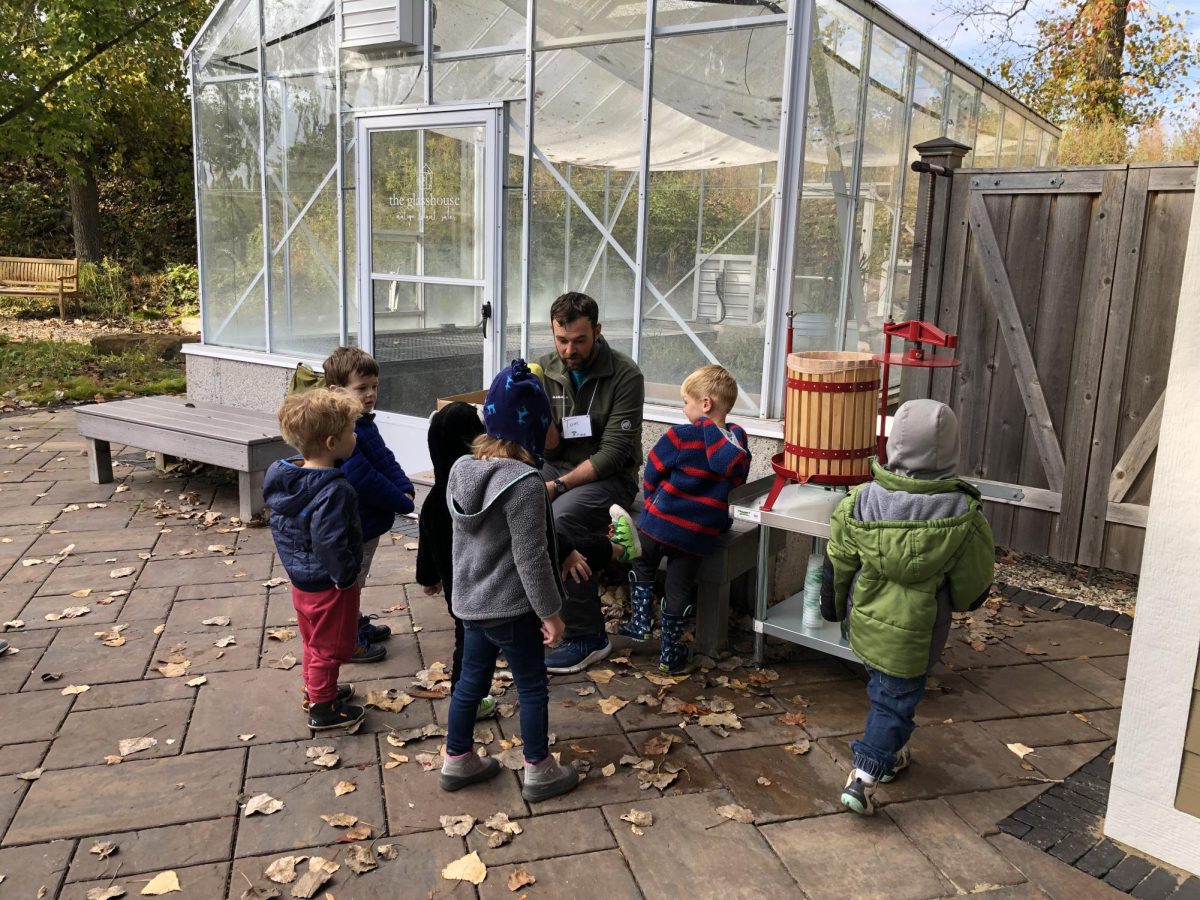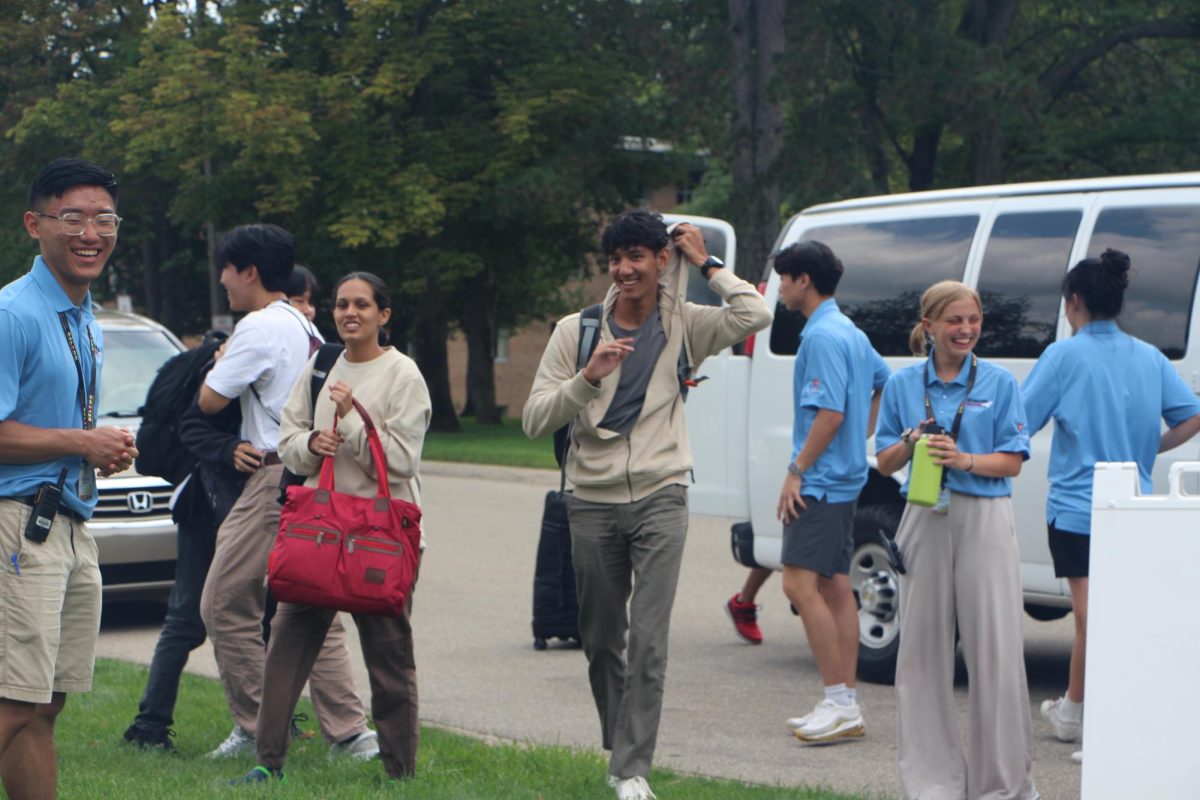“We’re going to start with a quiz,” announced Calvin religion professor Christiana deGroot, “so everyone clear your desks.”
There were some groans, as well as an enthusiastic “Let’s go,” as the 20 students pushed aside their books and papers and began work on the quiz about the Pentateuch.
Potted plants hung from the classroom ceiling, and the white concrete walls were painted with the K4L logo and an image of “Joust.” A Dialogue poster up front near the chalkboard reminded students of the March submission deadline.
“Don’t forget to put your name on the top,” reminded deGroot as the students finished up their quiz.
This scene could have been taken directly from nearly any Calvin classroom. What makes it unusual is that it took place not on Calvin’s Knollcrest campus, but in Room 19 of a building in the Handlon Correctional Facility, where 20 inmates, enrolled as full-time Calvin students, are getting a bachelor’s degree in ministry leadership.
These students take three classes per semester and will finish their degrees in five years. This semester, they’re taking a religion class with deGroot, a philosophy class with professor Kevin Corcoran and an English class with professor Kimberley Benedict.
“The professors are great, and they explain things in a way that really helps us understand,” said Grady, a student who, like many in the class, transferred to Handlon specifically to pursue a Calvin degree.
Many of the students mention that, while they’ve taken some correspondence courses in the past, the opportunity to earn an accredited bachelor’s degree while in prison is nearly unheard of.
“This was always a dream of mine, but I didn’t think it was attainable,” said Dustin, another student in the class. “This is making a huge difference, to bring education to this segment of the population has dramatic effects. … College 100 percent changes the way guys act, behave, speak, think — every aspect of our lives.”
DeGroot sees her students at Handlon taking full advantage of this opportunity.
“They’re eager to learn. They come to class absolutely prepared; they’ve read readings two or three times and are really engaged in discussion,” said deGroot. “As professors, that’s what we love to see.”
“I think we bog the professors down,” said Ryan, another student. “Every time they stop for questions we bombard them. If they stay after class, we surround them and ask questions.”
The 20 students in the class this year were chosen from 35 applicants, all of whom filled out application forms, answered several essay questions and submitted a transcript and recommendation. DeGroot said she is hoping to see the program expand each year, until eventually there are 20 new students coming in and 20 graduating every academic year.
Despite the group’s characteristic enthusiasm and thirst for learning, earning a degree in prison does pose unique challenges. For example, while they can use laptops, inmates aren’t allowed Internet access, which can make research for papers more difficult.
DeGroot said that the Hekman Library staff has been instrumental in problem-solving, especially Lois Dye, the library liaison for the program.
“They’ve put the whole library catalog on the computer, so students can search it when researching projects, essays and the like. Then the students fill out a form for the books they’d like to check out, and I take the books in and out of the prison for them,” said deGroot.
In addition to teaching, deGroot and her program co-director, Todd Cioffi, professor of congregational and ministry studies, also serve as advisors for the students at Handlon.
“We try to keep track of how things are going with each student. They get stressed about things like tests and papers, and we remind them that this is normal for college students. And we’re slowly getting to know them as persons and [know] their stories,” said deGroot.
Several Calvin students from the Knollcrest campus have gotten involved with the program as tutors, including Julie Bylsma, a junior biology major who goes to Handlon once or twice each week.
“We go in on a day where a professor isn’t teaching and give the students time to ask questions, things like whether or not a paper is focused enough, if they’re on track. So we’re kind of like a mini Rhetoric Center,” said Bylsma.
Bylsma said that, though she was unsure what to expect at first, her experiences at Handlon are teaching her something new every week.
“I’ve been most shocked and impressed by the students in the program. I’ve never seen students so committed to their studies. Some of them rewrite their papers eight times,” said Bylsma. “They exceed my expectations at every turn – when I’m tutoring them and when I’m just talking with them.”
The students at Handlon are all quick to express their gratitude to Calvin for the chance to be a part of the program, which is free to accepted applicants and runs on donations.
“We appreciate the amount of effort that Calvin has put forth towards us. That’s something we as prisoners don’t really receive,” said Ryan, another student in the program. “Calvin is bridging a gap in culture. It’s a way for us to interact with society, a world of people who care about us.”
Nick, another student, expressed that, for him, the program was not only an opportunity for an education but an answer to prayer.
“I thank God everyday for the opportunity. I’ve been hoping for higher education for so long, and I’m also so thankful for the Christian brothers I’ve met through this program,” said Nick.
Ultimately, deGroot has similar hopes for her students at both Handlon and the Knollcrest campus: that they would be good writers and students who take full advantage of a Calvin liberal arts education.
“[These students] are finding their vocation. They’re interested in ministry, in turning around the culture of the prison and in turning around their own lives.”



